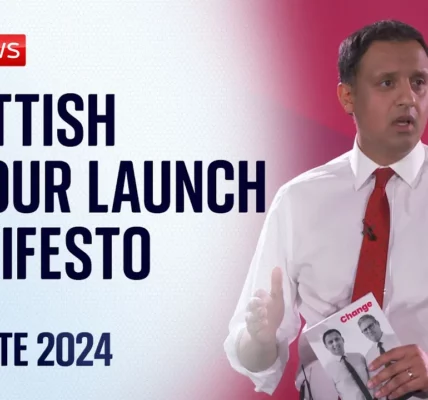Israel’s Hostage Crisis: Public Sentiment and International Relations with Hamas

This article delves into the complex emotions surrounding the recent hostage crisis in Israel, highlighting public sentiment, governmental responses, and the implications for international relations, particularly with Hamas. Understanding these elements is crucial for grasping the broader context of the ongoing conflict.
Introduction
The recent execution of six hostages by Hamas has sent shockwaves throughout Israel and the international community. The tragic loss has not only amplified the grief felt across the nation but has also ignited a wave of anger directed at both Hamas and the Israeli government. This article aims to explore the layers of grief, anger, and the complex dynamics of negotiations for the release of hostages, while considering the broader geopolitical implications of these events.
The Impact of Hostage Executions
The execution of hostages is not merely a tragic event; it serves as a pivotal moment that influences public sentiment and governmental actions. In Israel, the mood is one of mourning and fury, particularly directed at Hamas for their brutal actions. The collective grief is palpable, and the anger is directed not only at the perpetrators but also at the Israeli government, which is perceived as failing to secure the release of hostages.
Public Grief and Anger
The Israeli public has been vocal about their feelings following the executions. Many citizens express their sorrow and frustration, leading to a complex emotional landscape.
- Mourning for the lost lives and the impact on families.
- Anger towards Hamas for their inhumane actions.
- Frustration directed at the Israeli government for perceived negligence.
Government Response and International Relations
The Israeli government’s response to the hostage crisis has been scrutinized both domestically and internationally. While the government asserts its commitment to securing a hostage deal, critics argue that there has been a lack of effective action.
Criticism of Government Actions
Family members of the hostages and various political figures have expressed dissatisfaction with the government’s approach, describing actions as inadequate and filled with “spin.”
- Critics highlight perceived failures in negotiation strategies.
- Calls for accountability and transparency from the government.
- Demands for a clearer plan that ensures the safety of hostages.
International Community’s Role
The international community plays a crucial role in shaping responses to the hostage crisis. Various nations have shown support for Israel, but some have also expressed concerns about humanitarian issues arising from military actions.
- Expressions of solidarity from countries like the United States.
- Concerns raised by European nations regarding military operations.
- The need for a balanced approach to ensure the safety of civilians.
The Path Forward: Negotiations and Strategies
Negotiating with Hamas presents significant challenges, particularly in light of their recent actions. The Israeli government emphasizes the need for a united front both domestically and internationally to pressure Hamas into compliance.
Negotiation Tactics
To facilitate negotiations, Israel must navigate a complex web of military and diplomatic strategies:
- Maintain military pressure on Hamas to demonstrate strength.
- Engage in international diplomacy to garner support.
- Explore temporary ceasefires as a means to negotiate long-term solutions.
Addressing Security Concerns
The ongoing security concerns for Israeli citizens are paramount. The government is wary of any actions that could jeopardize the safety of its population:
- Ensure that the Philadelphia Corridor remains secure to prevent arms smuggling.
- Prioritize the safety of hostages while addressing long-term security needs.
- Foster international partnerships to combat Hamas’s activities effectively.
Conclusion
The hostage crisis in Israel has unveiled deep-seated emotions of grief and anger both among the public and within the government. As the nation grapples with these feelings, it is crucial to redirect anger toward Hamas and work towards effective negotiations that prioritize the safe return of hostages. The international community must also play an active role in supporting Israel while addressing humanitarian concerns, fostering an environment conducive to peace and security.
For further reading on the complexities of the Israeli-Palestinian conflict and the role of international diplomacy, please visit our related articles.
“`




